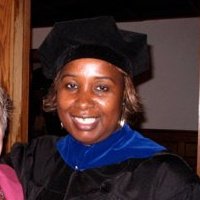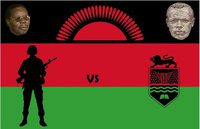On the morning of 12 February 2011 the Inspector General of the Malawi Police Service, Mr Peter Mukhito, summoned University of Malawi Associate Professor, Dr. Blessings Chinsinga, to interrogate him on allegations that he had been inciting university students to take to the streets in protest against the Malawi government. A student in Dr. Chinsinga's class, believed to be a police officer studying at the University of Malawi, is suspected of having informed on the lecturer about an example Dr Chinsinga is said to have used to illustrate a point. Dr. Chinsinga is said to have alluded to the recent uprisings in Tunisia and Egypt, which toppled long-ruling dictators in the two countries, saying problems of fuel and forex shortages, which have hit Malawi in the last several months, can lead to similar uprisings.
News of the summoning appeared within hours on Boniface Dulani's blog. The constituent college of the University of Malawi where Chinsinga teaches, Chancellor College, has grounded to a halt since. Lecturers at the college have since stopped teaching, citing fear of spies in classrooms, and demanding an apology and a reassurance of academic freedom, from the Inspector General of Police. The IG has not apologized, and the State President, Professor Bingu wa Mutharika, has sided with the Inspector General, announcing that Mr Mukhito will not apologize.
In a blog post as guest blogger on Dulani's blog, Dr. Chinsinga argued for the significance of competing ideas, saying it was the role of public intellectuals to offer new ideas to compete with those being propagated by the state. Titled The Poverty of Ideas, Chinsinga's article argued:
Consequently, a society that does not entertain alternative ideas, and in which the leadership projects itself as all knowing, catches up with the law of degeneracy rather rapidly. The decay is even much faster if a regime resorts to suppressing alternative ideas either covertly or overtly.
The Chancellor College lecturers, who have since been joined by another constituent college in the University of Malawi system, The Polytechnic, have been lead by Acting President of the Chancellor College Academic Staff Union, Dr. Jessie Kabwila-Kapasula. Dr. Kabwila-Kapasula has kept a running commentary on the unfolding events on her facebook page, where other facebookers, Malawians, friends and colleagues of Dr. Kabwila-Kapasula outside Malawi, have been sending messages of support and solidarity.
Posting on March 8 when heavily armed Malawi Police invaded the Chancellor College campus, Dr. Kabwila-Kapasula wrote on her facebook page (This content is currently unavailable):

Acting President of the Chancellor College Academic Staff Union, Dr. Kabwila-Kapasula (Photo from her Facebook page)
malawi is now a police state, it is official. as i write, there is police inside campus firing teargas at students whose only crime is to ask why they are not going into class. omg, this is not hapening. sadly, we have a weak opposition. we live a country where Bamusi [civil society leader] poses a threat more than political parties, how pathetic.
Two days later she posted again after police invaded the campus once more (This content is currently unavailable):
today i woke up to the reality that for the Malawi govt, university education is not a priority, students can be teargassed and not even one person in high office bats an eyelid. spent the day pushing police out of campus, teargassing students in the hostels.
On Saturday March 12, speaking to graduating students at Domasi College of Education, the president directed that the Chancellor College lecturers return to class and resume teaching by the following Monday. The lecturers defied the order, and sought a court injunction. On her facebook page, Dr. Kabwila-Kapasula wrote (This content is currently unavailable):
so now it is the principle of academic freedom versus bingu: head of state, chancellor and cammander in chief. I will not get back to class without academic freedom. a presidential decree cannot make me go into a snake infested classroom, stop me from upholding constitutional rights.
A facebook page created by Joseph J Banda, named The Online Demonstration for Academic Freedom in Malawi, has been receiving all kinds of reactions, some supporting the lecturers, some criticizing them, and some urging for dialogue.
The page says:
2. We demand a signed document that assure Academic Freedom and no further involvement of the government or any other parties in the Teaching system.
THE MALAWI CONSTITUTION
CHAPTER IV
33. Every person has the right to freedom of conscience, religion, belief and thought, and to academic freedom.
34. Every person shall have the right to freedom of opinion, including the right to hold opinions without interference to hold, receive and impart opinions.
35. Every person shall have the right to freedom of expression.
One comment in support of the lecturers read:
Its hard to believe that this is happening in a country where we have many so called “learned” leaders….we need to redefine this i think
A comment in support of the president, written in a mix of Chichewa and English, said:
ngati mwatopa ndi sukulu munene a bingu has other things to do like our graduation asafuna asiye [If you are fed up with school just say so. Bingu has other things to do, like our graduation. Whoever doesn't want to continue should just quit]
Another comment called for dialogue:
Lets only call for the understanding of the two parties so students may go back to class, we need a lot more educated minds to move this nation! I really feel bad for the situation
Not all lecturers and students are in support of the stand-off, and voices deviating from the stand taken by the lecturers have been heard on state broadcaster Malawi Broadcasting Corporation. Some lecturers and students are reported to have gone to court to seek an injunction against the striking lecturers, but thus far the effort has not succeeded. Other students are reported to have also gone to court to demand a withdrawal of the application for the injunction. In a radio interview with Brian Banda on Capital FM's Straighttalk, Dr. Kabwila-Kapasula said the door for negotiations was open. Esteemed professor of Law in the University of Malawi, Dr. Edge Kanyongolo, told weekly newspaper Malawi News that initiatives for dialogue needed to come from the government side, but the newspaper did not give reasons for Dr. Kanyongolo's thinking.








5 comments